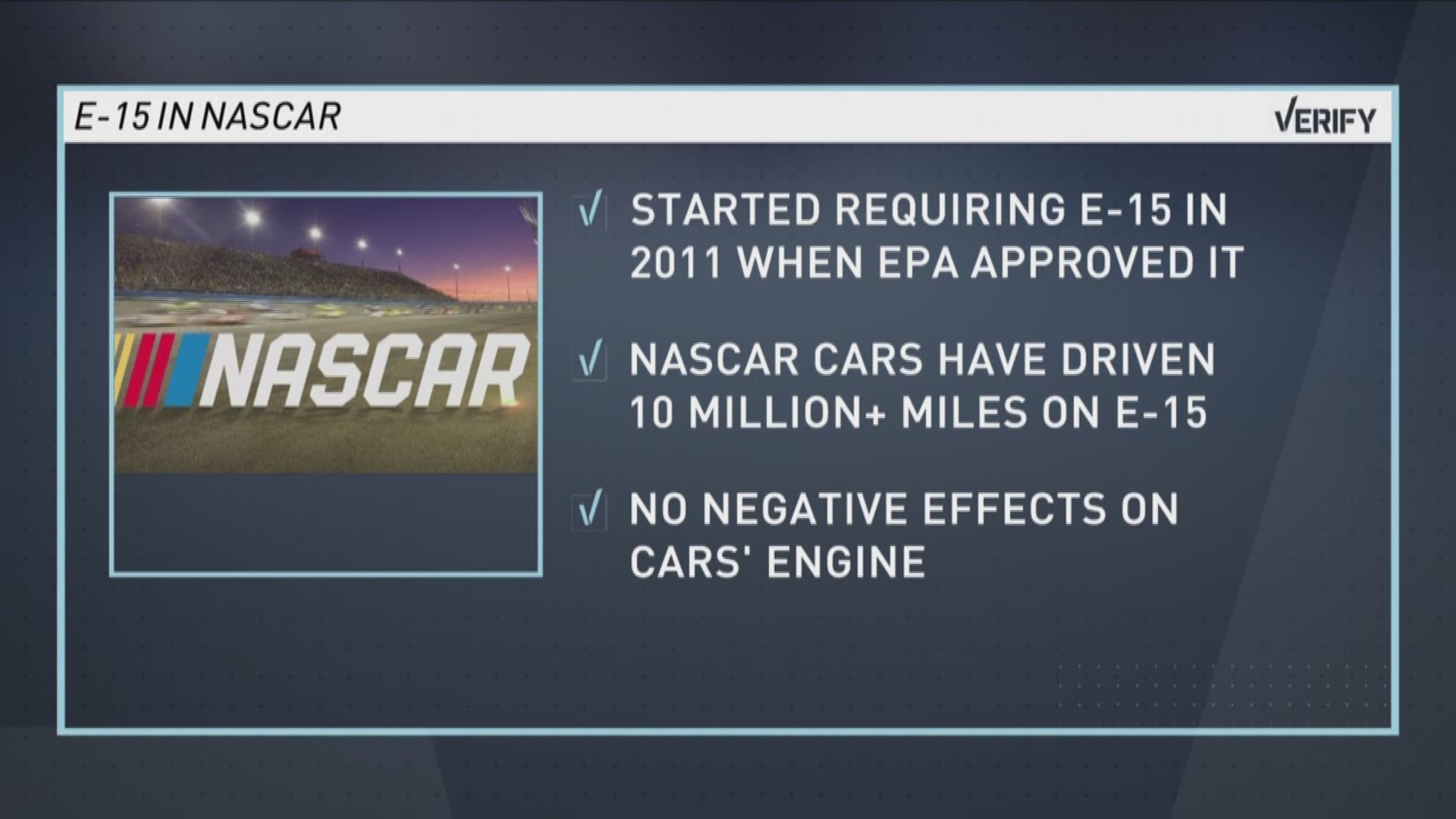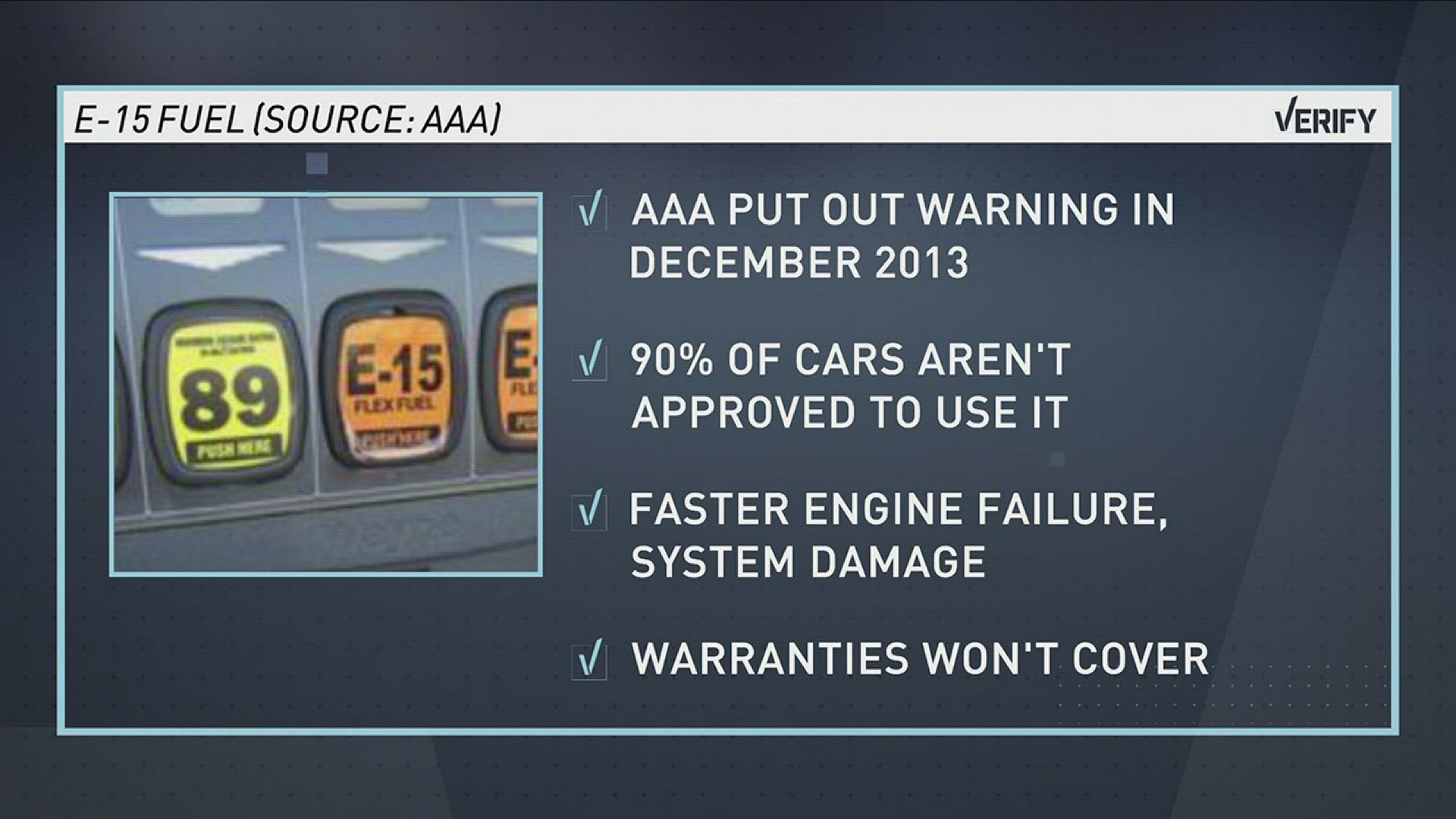GREENSBORO, NC -- It's marketed as an environmentally-friendly, cheaper alternative to regular unleaded gas -- E-15.
VERIFY INQUIRY
North Carolina Sheetz gas stations started carrying it last year, and it's usually the cheapest option at the pump. E-15 is a combination of 15% ethanol and 85% gasoline and is a higher-octane fuel.
In 2011, the Environmental Protection Agency (EPA) approved E-15 on vehicles built after 2001.
But, there are widespread reports that E-15 does far more harm than good on cars. Are those reports true?
VERIFY SOURCES
To verify this story, we got insight and analysis from three credible sources -- a 2013 E-15 report from AAA and David Dew, the general manager of Honest-1 Auto in Greensboro. We also talked to Dr. Andy Randolph, the technical director for ECR Engines, which makes engines for Richard Childress Racing.
VERIFY PROCESS
In December 2015, two years after the EPA approved E-15, AAA put out a warning. It found despite ethanol's benefits, most drivers are unaware of E-15's negative impacts.
More than 90% of vehicles on the roads aren't approved by manufacturers to use E-15. It can cause faster engine failure and system damage. Several automakers have said on record their warranties will not cover claims caused by E-15.
Local expert David Dew backs up that information. He said Ford, for example, certifies only vehicles 2012 or newer can use E-15. He also explains ethanol is a well-known corrosive.
"Although E-15 is rated for use in most vehicles made 2001 or later, it is not always the right call for your vehicle," Dew said.
"Many modern vehicles require the use of an 89 or 91 (here we have 93) octane rating; this is due to higher compression in the cylinders which can cause lesser fuels to combust under pressure, leading to an engine knock, which can damage your engine over time," he added.
It can eat through rubber seals, hoses and various other parts of the fuel system. He explained although E-15 can save a few cents on the front end, it can cost drivers more on the back end, because it lowers fuel economy.
But Dr. Randolph disagrees with those findings. He has studied the impact of ethanol on various engines and says E-15 is great for both the car's performance and the environment. That's why, he says, E-15 is the official fuel of NASCAR.
NASCAR started requiring E-15 in 2011, when the EPA approved it. Since then, NASCAR cars have driven more than 10 million miles on E-15. And Dr. Randolph says he has noticed no negative effects on the cars' engine, and there's not much difference between a NASCAR engine and a regular car engine.
"There isn't really any difference. (In the past) some cars over time could corrode, but anything that's been produced in this century can accommodate E-15 without any issues, whatsoever."
So, he believes all 2011 or newer cars can safely use E-15, and he isn't aware of any cases in which manufacturers haven't honored a warranty after E-15 use.
VERIFY CONCLUSION
One source says it's ideal to use E-15 on any 2001 or newer car and will save both money and the environment. The other two sources say don't use it -- it can be corrosive. So, the jury's still out, unless you believe one source's case over another. Your best bet -- check your car's owner's manual for fuel recommendations and use non-biased reports, like those from government agencies, for the latest updates on ethanol fuel.
%


